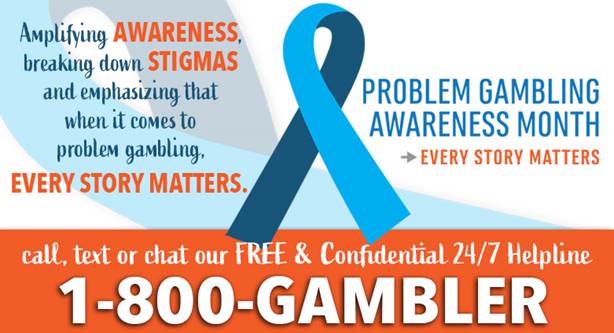The minimum age for sports betting in Maryland is 21, and for the Lottery, it’s 18. During a 2022 high school focus group in Western Maryland, all 15 youth said confidently, “I don’t gamble.” Yet, at the end of the focus group, nearly all raised their hands when the group was asked to raise their hands if they had ever been given a scratch-off ticket. Do youth know what gambling is?
In 2022, Mohamed Kakay, a Public Health Associate from the Centers for Disease Control and Prevention, and I conducted 30 focus groups on underage and problem gambling across the State of Maryland. Seven of those groups were youth between the ages of 12 to 25. Despite the rapidly expanding legalization of gambling across the U.S., most of the youth we interviewed initially found it laughable that we were talking about it. However, not only couldn’t they recall a doctor, teacher, or faith-based leader ever talking to them about gambling, but their parents had never discussed the risks associated with gambling. With each passing question, we could see that light bulbs were beginning to go off as to why we were there talking about gambling. Many youth could recall someone they knew who had used their parent’s credit card to buy loot boxes or other microtransactions in video games without permission and got in trouble, while others recalled knowing someone who had bet on dice games and lost money. A few could recall older people they knew losing houses, experiencing family problems, or facing large debts due to excessive gambling. Among each of the seven youth groups surveyed, you could see a transition in the tone and seriousness of the conversations as they realized the risks of gambling.
They said purchasing a lottery ticket was easy because merchants don’t card. In addition, parents often give their children lottery tickets or play along with them. They said in our society, it appears as though everyone is gambling. Even before mobile betting was legalized in Maryland, youth could easily access gambling on cell phones.
The problems caused by youth gambling include financial problems, stress, addiction, loss of property, poor school performance, and family problems. The most frequent reason mentioned for youth gambling was advertisements. They see advertising everywhere, mostly popping up online.
Through the focus groups, the voices of the youth provided guidance on underage gambling prevention strategies. Research shows that the earlier a person starts gambling, the more likely they are to develop a gambling problem later in their life (NCPG, 2022). The first step is to educate youth on the minimum age for participating in legal gambling activities such as lottery, casino gambling, and sports betting. This is an opportunity to open the discussion as to why gambling is risky for those who are young. Similarly to substance use, gambling addiction is more likely to occur in younger populations due to the brain not being fully developed until age 25 (Arain, M., et. al., 2013). Risk factors for problem gambling in younger populations include having a parent with a gambling problem, the early first age of gambling increased impulsivity, and having substance use or mental health disorders (Wiber M. et al., 2006). Just like with adults, gambling can be used as a negative coping strategy for stress and mental health problems.
Then, add to the mix the popularity of video gaming. Video games may contain loot boxes that are like virtual gambling. Money or virtual currency can be used to purchase a mystery box with an uncertain outcome. Youth and parents are often unaware that these features exist in video games. Video games are rated by the Entertainment Software Rating Board (ESRB). Games rated “M” for Mature or “A” for adults are more likely to contain gambling features within the game. Any game with gambling features should include a warning label, “Warning: In Game Purchases, includes random items” (ESRB, 2023).
Finally, youth are now exposed to sports betting at a young age. Youth are exposed to ads for sports betting that contain enticing incentives to participate. Sports betting is now legal in 38 States, expanding quickly, all within the last few years (American Gaming Association, 2023). Sports betting is easily accessible in many states through a mobile platform. Bets can be placed continuously throughout games, increasing the excitement and may lead to more spending. Even though there is a minimum age to bet, youth often access these platforms by having a parent or older family member create an account for them, or they use illegal sites.
With all this going on, it goes back to conversations and education on the topic. Parents or those who work with youth can have conversations about the risks of gambling at a young age. Education on gambling can be included with education on mental health and substance use disorders in health classes or other educational programs. More research needs to be done on the impact of gambling expansion on our youth.
March is Problem Gambling Awareness Month. This March, have a conversation about the risks of gambling with the youth and young adults in your family or those whom you serve.
References
